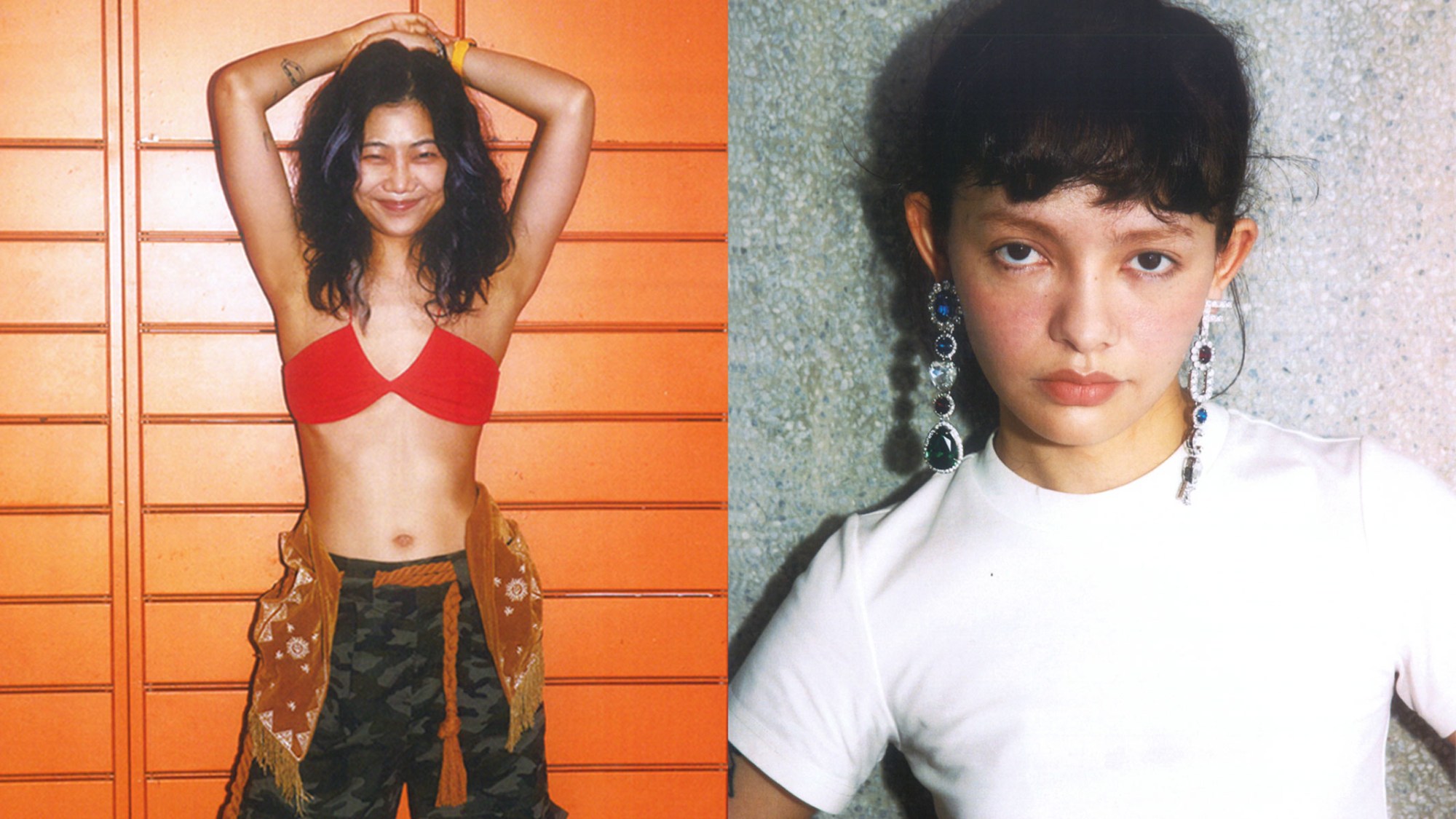This story originally appeared on i-D China.
It is the norm across much of the world, for June to bring with it a slew of rainbow-coloured advertisements and obligatory solidarity posts on social media. Although less widespread, this is increasingly the case in China too, where last month saw brands (particularly those with international reach) celebrate their diverse audiences with depictions of queer love and friendship. But in a country where – while much progress has been made to build a more inclusive society – same-sex marriage and adoption is not yet legal, does this provide much-needed visibility or are efforts misplaced? How do Chinese members of the LGBTQ+ community feel about the state of queerness in their country in 2022?
We spoke to 7 young queer creatives living in Shanghai about their journeys so far, their thoughts on the influx of brands jumping on Pride and what needs to change to improve the lives of local queer people.
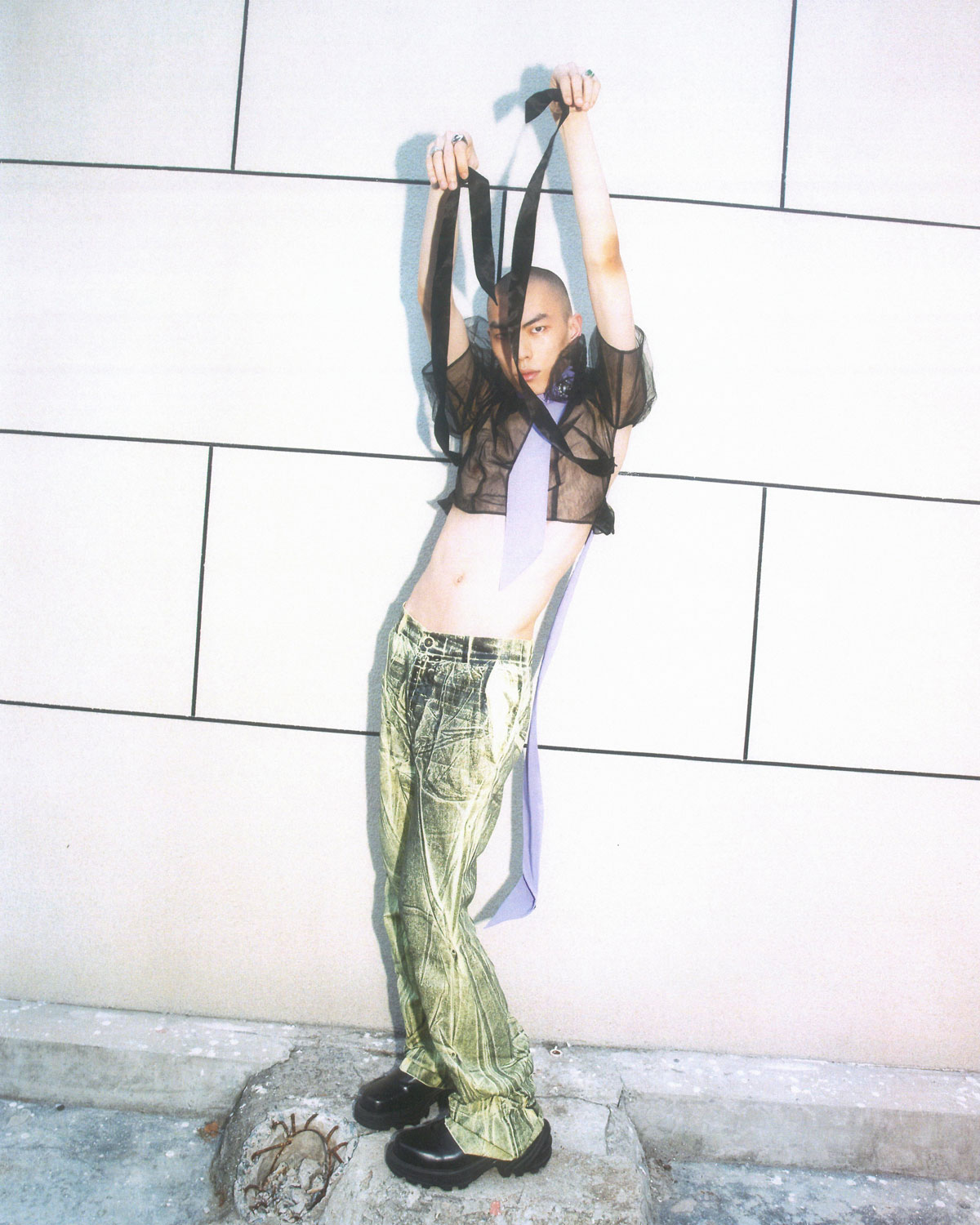
Liam, 23, PR
What did coming to terms with your identity look like?
I define my entire coming-of-age as a self-acceptance period. I had an internal struggle between accepting myself and wanting to be accepted. But this was also a good thing — it made me love myself more, and get along better with myself.
More and more brands are spotlighting the LGBTQ community in their campaigns. How do you feel about that?
While representation of our community to the rest of society is important, this can sometimes feel more like a marketing strategy to build up a so-called conscious brand. But in fact, as a community member, I don’t want to be tagged as a minority group. It is my hope that everyone is treated equally.
What are your hopes for the future of the community?
That everyone is simply treated as a human being and appreciated for their contribution to society, rather than the focus being on which community they’re a part of.
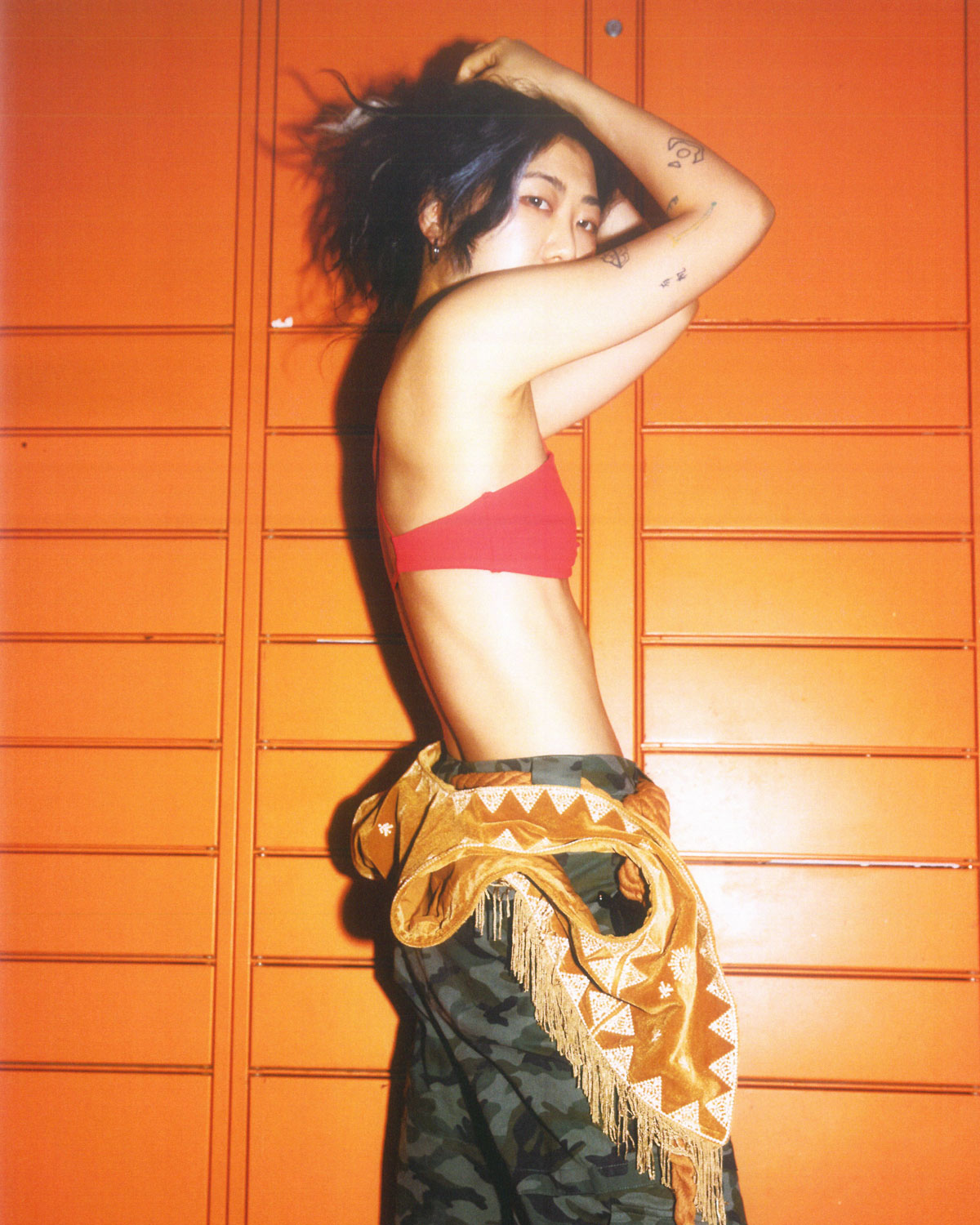
Lu, 26, content planning
Do you remember the first time you expressed yourself fully?
A memorable moment is the first time I kissed someone in a gay club during college — I hadn’t had a same-sex partner before that. I remember that the atmosphere – my heart lit up in an instant and I felt very beautiful. A passerby asked me, “Why are you doing this?” and gave us some disrespectful gestures. I just hugged her even tighter. I think this event represents a change in my mindset: to just open myself up and embrace happiness.
Has anything else prompted a moment of realisation and growth?
There was a moment with my mother. Although we have still not discussed this issue head-on, when I came home one day after a break up, I was so sad that I fell into my mother’s arms and cried. I didn’t say anything, she didn’t ask anything, she just patted me on the back and told me: “It’s okay, this person is clearly not suitable.” I know she wanted to ask a lot of questions, but she chose to give me comfort first.
What kind of attitudes have you learnt to deal with?
Sometimes it’s the “friendly” words that horrify me, like when people say that my sexuality is “so cool!” or that “I envy you for not having to deal with men!” and so on. I won’t speculate on the psychology of the person saying these words, but this makes me feel othered from the so-called mainstream crowd.
What is your vision for the future of the community?
I feel lucky to be in a relatively inclusive time and environment. In some places where the concept of heteronormativity or marriage-promotion is serious, minority groups face more pressure and even danger. I hope that, in the future, LGBTQ+ people everywhere can also be relaxed and free. For this to happen, community must have a more practical meaning: there are NGOs and other community organisations ensuring these minority groups can get physical and mental health support. I also want to be involved in it in the future.

Jinkuang, 32, brand operations
When did you realise you were gay?
It wasn’t until after being dumped by a girl in high school, that I started to like a boy in my class and realised I was different. I thought I was the same as everyone else for the longest time.
What are your thoughts on mainstream media’s portrayal of the community?
A positive might be more exposure – being seen or understood by more people. The negative part is that media outlets can over-exaggerate, so may be inclined to pick out more exciting images or representations of the community to share: like locking a canary in a beautiful cage to appreciate it. The impression of the community conveyed over time may therefore be relatively single and symbolic. I don’t mean to disagree with media platforming the community though, because it is also a necessary process.
What is your vision for the future of the community?
I hope that everyone will silently remember the words: “None of your business, none of my business.” I want everyone to be able to live as they want, so long as they don’t hurt others. I don’t want people to get “special treatment” because of their sexual orientation, just because of their charismatic personality!
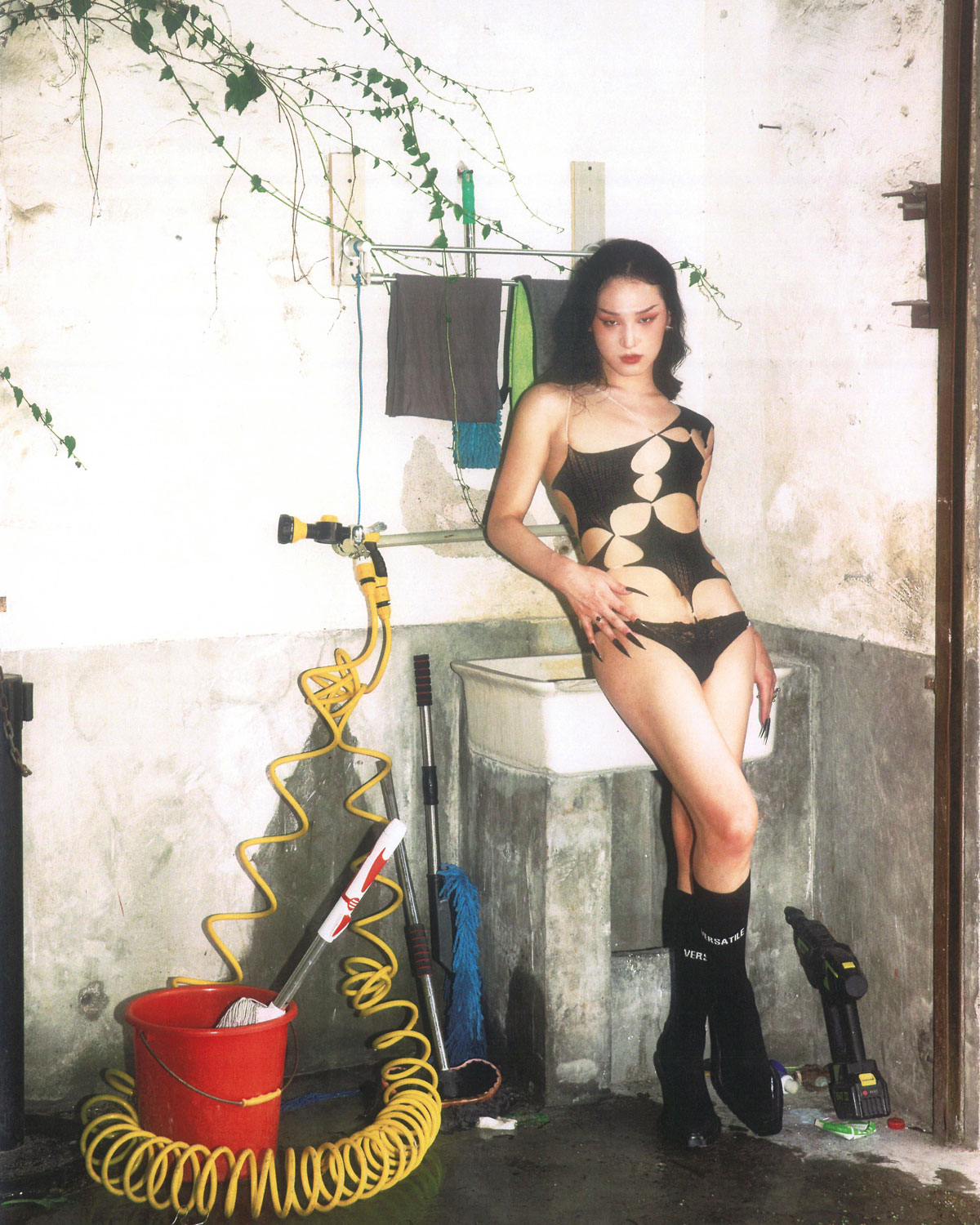
Lucien Meng, 24, PR
Where does your sense of identity come from?
At first, I thought I was gay. Throughout my childhood, my understanding of gender was that there was “male” or “female” and nothing else. Until high school, I thought: well, I’m gay… but I’m a boy like the other boys. I didn’t have a sense of identity though; I was pretending that everything was fine, pretending to be gay. Before I went abroad one time, my mother and aunt came to the airport to see me off and my aunt gave me a Dior lipstick. It was a turning point. I don’t know if it was because of vanity or because I felt that my psychological gender was being affirmed, but I really felt more at ease because of that lipstick.
What would you say to people who haven’t been able to truly accept themselves yet?
Wang Zengqi has a passage in his book, Plants and Trees in the World (人间草木) that says: “Gardenia is thick and big, and the fragrance is so fragrant that it can’t be brushed off, so elegant people don’t like it, thinking it’s not high in character. Gardenia said: Fuck you, I just want this fragrance! The fragrance is so sweet!!”
What is your vision for the future of the community?
I never categorise gender as clearly as black and white, because I know that many times gender or sexual orientation is in a gray area. I am more “female” today, and I am more “male” tomorrow. Loving “men” and “women” is as natural as loving mountains and water. You can say that thinking like me is not safe, but actually, it’s because I never categorise gender clearly that I can better protect myself. There’s no need to define each other by gender, nor restrict each other by gender norms. We are all ordinary people who work, live and love others.
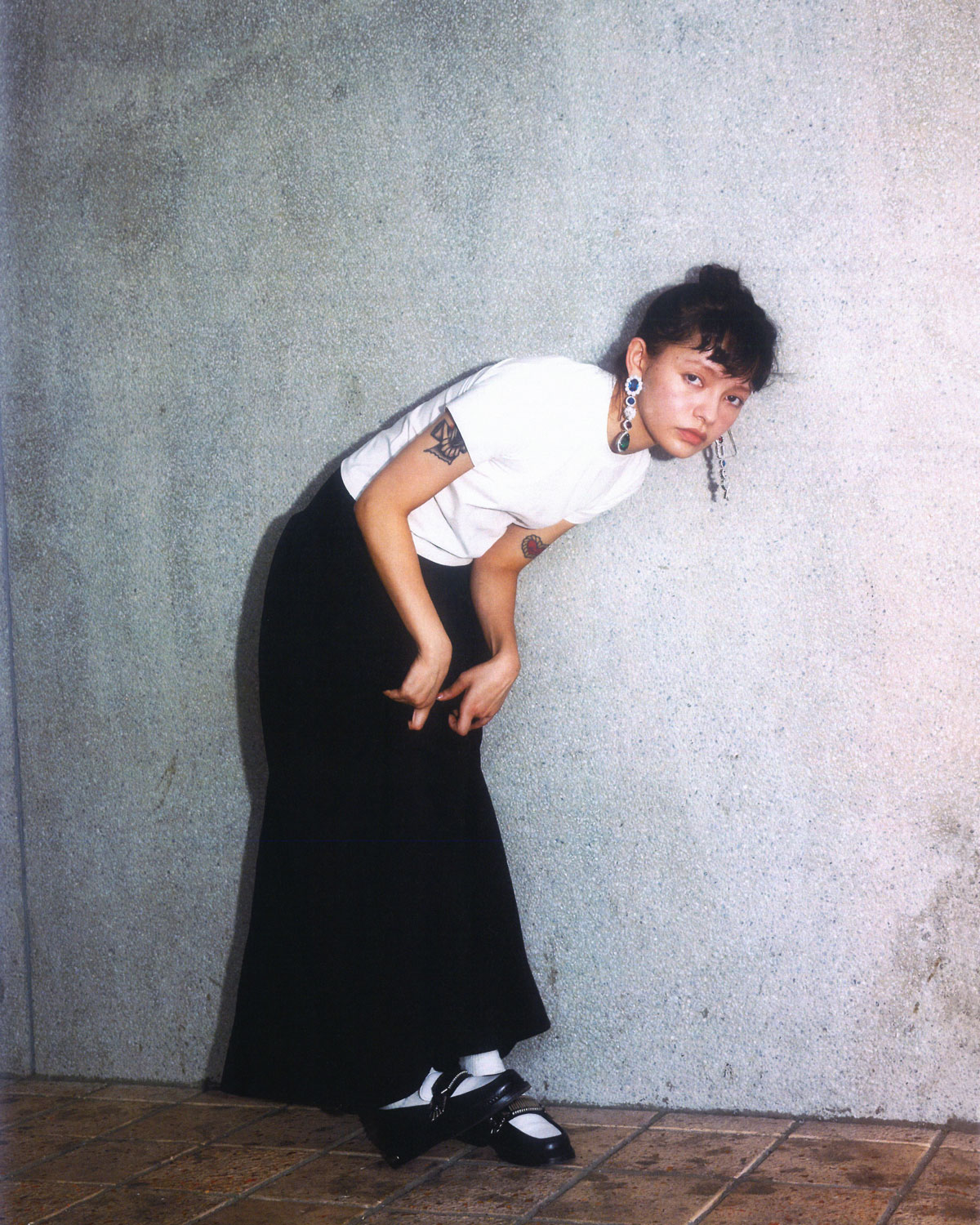
Jana, 24, model
What did coming to terms with your sexuality look like?
After knowing that I liked a girl for the first time, I came out almost six months later. The process was just as I expected, and it did attract a fierce reaction from family. It took a long time to explain myself but my family are now in a state of semi-acceptance.
Not everyone is truly authentic on social media, why do you think that is?
The progress of civilisation. But more and more people are daring to discuss things that have been suppressed or even strongly opposed for a long time now. For every single person, having that discussion is the first step to being accepted.
What is your vision for the future of the community?
I hope that people will stop resorting to criticism when they are unfamiliar with something or don’t understand it. Real respect is based on not being hostile to people that are different, but treating them with tolerance and sincerity; being able to respect everyone’s own will and ideas.
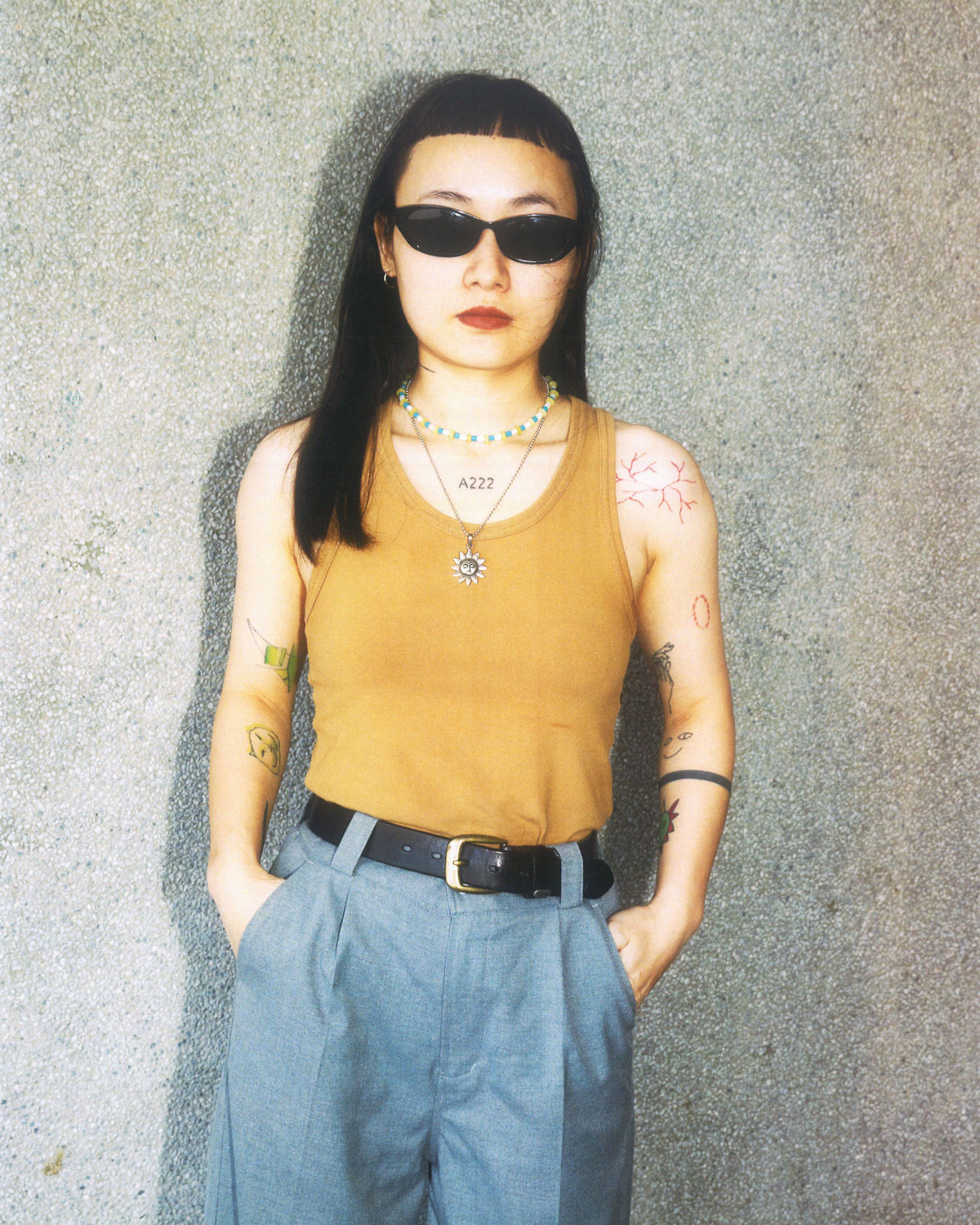
SiJi, 33, artist
What was the bravest thing you did after coming out?
At the age of 22, I left my job as an oil worker in the Taklamakan Desert and I started a new life in Chengdu, where I lived for 7 years.
Do you feel supported by your family and the people around you?
My family doesn’t get too involved in my life and they don’t judge me. I have full freedom to do what I want to do. Shanghai is a culturally diverse city and everyone is polite, so I’m not often offended here.
What is your vision for the future of the queer community?
I would like everybody to just treat me normally, get to know people positively, and don’t treat anyone as alienated beings. I hope we can break the cognition of binary opposition as much as possible.
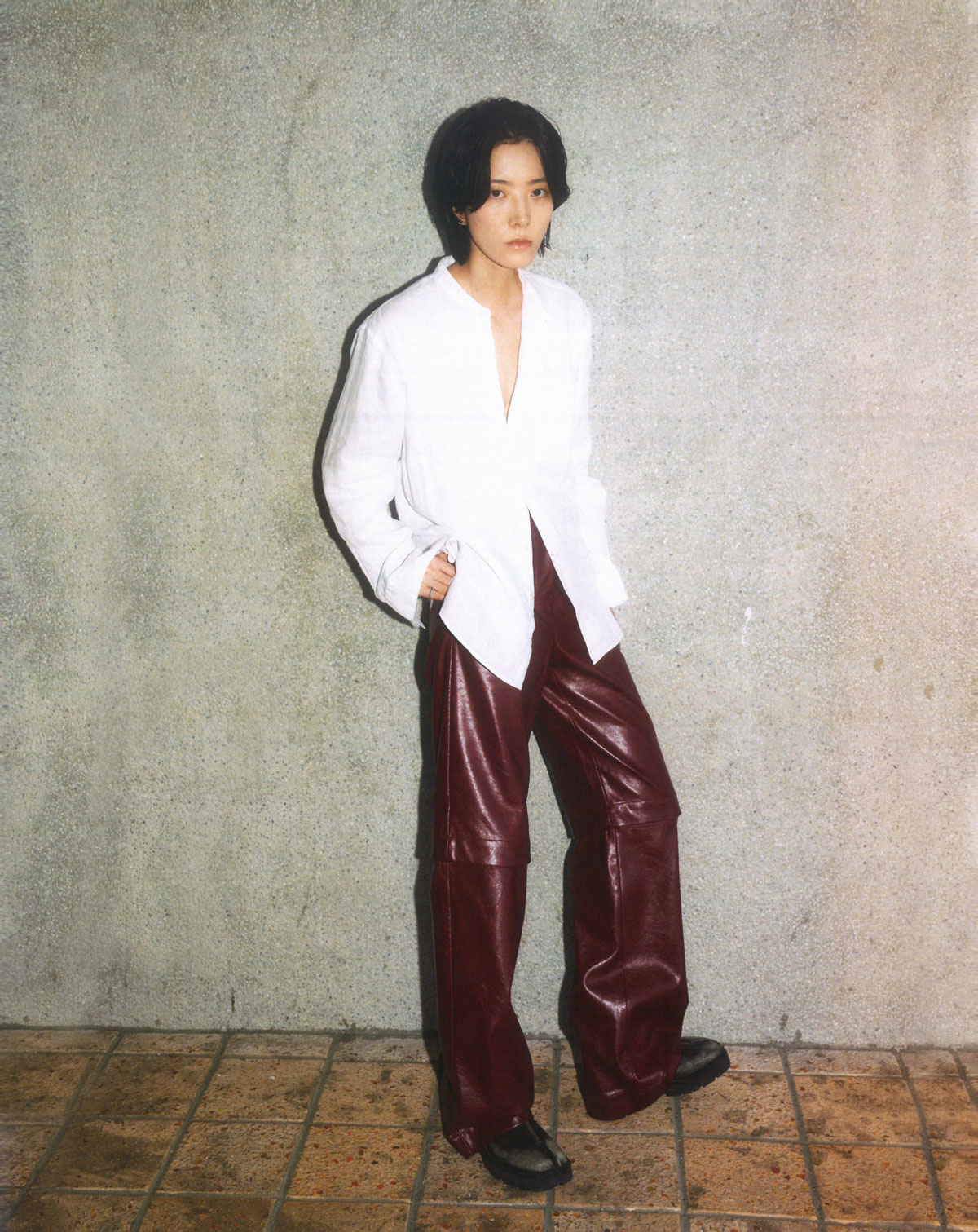
Rozenhsu, 27, visual designer and editor
Do you remember when you first felt connected to the community?
I was in the first year of junior high and a long-haired girl from the year above told me that she liked me. I was scared and I didn’t understand it at the time, but then I slowly began to connect with both the community and myself. It was the years I lived in Tokyo, though, where I really felt that I belonged. This is thanks to the professors who spoke to me about LGBT-related research; the Japanese friends who made queer magazines and films; and the people who don’t necessarily know each other but gather every Saturday in Shinjuku 2-chome wearing the clothes that make them happiest.
Solidarity with the community is now regarded as an ideologically correct thing for brands to do. What do you think of this?
Everything will eventually be capitalised on or even politicised. To a certain extent, it has milestone significance and is also necessary — through solidarity, these minority groups have gone from being seen and recognised, to being understood and encouraged. But too many brands act out this “ideological correctness” to demonstrate their brand values. At present though, for political reasons, few brands in China are supporting the LGBT community. If there are such brands in China, I think I would still be willing to support them.
What is your vision for the future of the community?
I hope we can be accepted – whether on an individual level or through policy. Life can be difficult for many people in this group, and they need to work harder than others for their ideal life. From my personal point of view, my simplest wish is that everyone can grow old being who they want to be, alongside the person they love.
Credits
Photography Hqeivy
Photo assistant Ola
